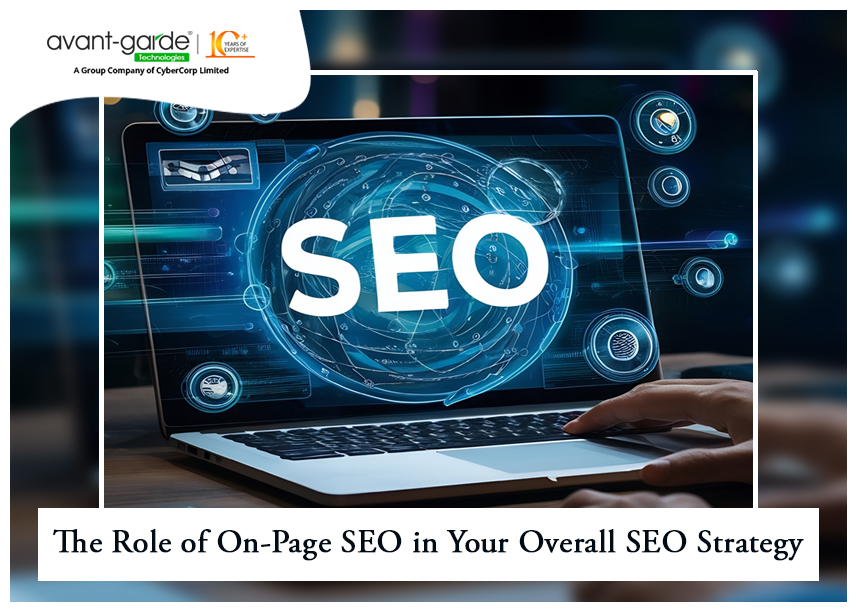
The Role of On-Page SEO in Your Overall SEO Strategy
- Blog
- Blogthe-role-of-on-page-seo-in-your-overall-seo-strategy

In the competitive world of digital marketing, achieving and maintaining a strong online presence is critical. One of the key factors for its success is search engine optimization (SEO). Although there are many components to a comprehensive SEO strategy, on-page SEO stands out from a fundamental and well-managed perspective. Understanding the role of On-page SEO can help you improve your website's performance, improve your search engine rankings, and attract more organic traffic.
On-page SEO involves optimizing individual web pages to make them more attractive to search engines and users. This includes specifying content, HTML source code, and other elements directly on your website. The goal is to make your pages as relevant and valuable as possible for search engines and users. AGTS is creating the best seo strategy for ecommerce website for better outcome.
Content Quality and Importance:
Quality content is the cornerstone of on-page SEO. Make sure your content is informative, engaging and relevant to your target audience. Of course, use keywords that users are likely to search for, but avoid overstuffing them.
Title Tags and Meta Descriptions:
Title Tags and Meta Descriptions are important for both SEO and CTR. Create attractive, keyword-rich headlines that accurately reflect the content of your page. Write concise meta descriptions that encourage users to click on your link in search results.
Heading tags:
Use heading tags (H1, H2, H3) to structure your content. This not only makes your content easier to read, but it also helps search engines understand the hierarchy and importance of the information on your page.
URL Structure:
Create clear and descriptive URLs that contain relevant keywords. Both search engines and users prefer simple and readable URLs.
Internal Linking:
Internal links connect different pages of your website, making it easier for search engines to crawl and index your content. They also help users navigate your site and find related content.
Image Optimization:
Optimize images by using descriptive filenames and adding alt text. This improves usability and helps search engines understand the content of your images. Contact AGTS, the best digital marketing agency in kolkata.
Mobile friendliness:
Make sure your site is mobile-friendly, as a significant portion of web traffic comes from mobile devices. Responsive design and fast load times are crucial for a positive user experience and better rankings.
Page Load Speed:
Pages that load quickly improve the user experience and are preferred by search engines. Optimize your website's performance by compressing images, minifying code and optimizing browser cache.
Improved search ranking:
Well-optimized pages are more likely to rank higher in search engine results, increasing visibility and traffic.
Improved user experience:
On-page SEO improves the overall user experience by making your site easier to navigate and your content more interesting and relevant.
Higher CTRs:
Optimized title tags and meta descriptions can improve your CTRs on search engine results pages, increasing traffic to your site.
Higher engagement:
Well-structured content and powerful internal links keep users on your site longer, reducing bounce rates and increasing engagement.
In conclusion, on-page SEO is an important part of your SEO strategy. By optimizing your content and website structure, you can improve your search engine rankings, attract more organic traffic and provide a better user experience. Investing in on-page SEO is an important step to long-term online success. Contact AGTS, the best digital marketing agency in india. Contact Now.